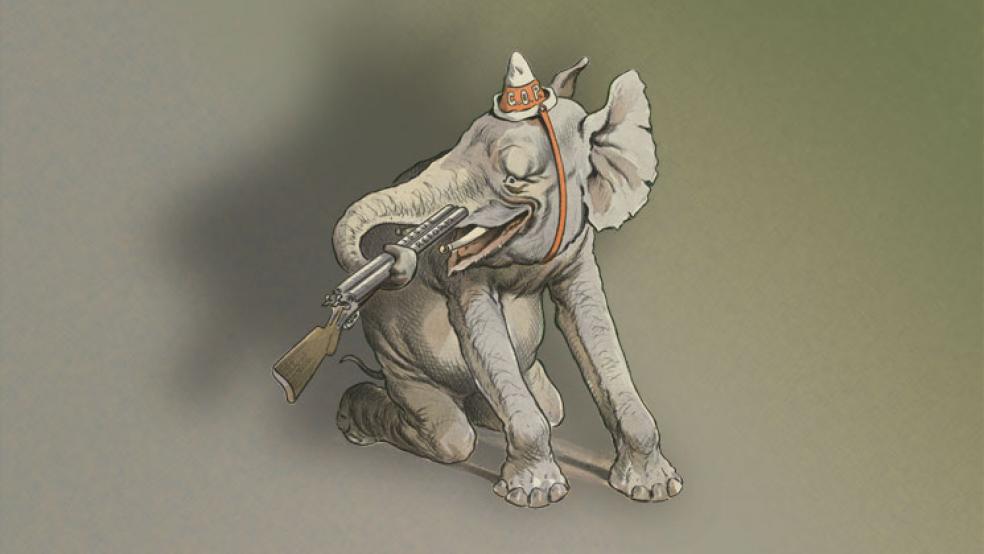The hard right wing of the House Republican conference was in a celebratory mood on Thursday after the news broke that House Majority Leader Kevin McCarthy would drop out of the race to succeed John Boehner as Speaker of the House. But there is a possibility that their strategy of complete resistance to the party establishment might backfire, according to Rep. Charlie Dent (R-PA).
Dent, one of the more moderate members of the Republican conference, was visibly angry in an interview with CNN shortly after McCarthy announced his decision to drop out. The right wing rebellion that convinced McCarthy that he would not be able to collect the 218 votes he would need on the floor of the House to secure the speakership had also forced Boehner to announce his resignation.
Related: Obama and Congress Playing High Stakes Poker Over War Funding
The problem for Republicans is that while they have a majority of 247, about 40 of their members in the House – the Freedom Caucus – refuse to support any candidate for speaker who is not a doctrinaire conservative. That leaves the party short of the 218 votes it would need to secure a majority of the full House in a floor vote – unless they nominate a strong conservative.
However, if they did nominate a candidate acceptable to the most conservative members, it’s possible that the remaining moderates in the party would rebel and cause the same problem.
Asked how anyone in the House could assemble a majority under those circumstances, Dent said the next speaker might be forced to reach across the aisle and establish a “bipartisan coalition” to elect a Speaker.
“The next speaker should not appease those who make unreasonable demands,” Dent said. “There are a number of members of our conference who simply cannot get to yes on anything. To them the perfect will always be the enemy of the good. In my view it is now time to marginalize those members who don’t want to be part of a governing majority.”
Related: Kevin McCarthy’s House of Cards Crumbles
“We might have to assemble a bipartisan coalition on the floor to elect the next speaker,” he said. “That’s what it could come down to.
Asked by CNN reporter Dana Bash if he really thought that Democrats could be convinced to vote for a Republican speaker, he said, “I don’t know what’s going to happen. Anything is possible right now. But it’s pretty clear to me that a number of us are not going to appease or accede to those who make unreasonable demands. In order to govern around here. We need to have a bipartisan coalition on all the major bills I mean, if we can’t get 218 votes for a Republican speaker, then we’ll have to try other options.”
While a long shot, there is a small group of Democrats in the House who would be the obvious choice for a Republican looking to build what would amount to a coalition government on the style of a European Parliament: the House Blue Dog Coalition.
The Blue Dogs--fiscally conservative Democrats who disagree with their party on some issues, including fiscal matters and some social issues--were once a considerable force in the House of Representatives, with enough members to force concessions from Democratic leaders when their party held the reins of the House.
Related: Wall Street to Congress – Don’t Make Us Pay the Infrastructure Bill
The Blue Dogs’ numbers have been drastically depleted in the last several elections, but there are still 15 Democrats in the House who belong to the coalition.
In theory, at least, even if a Republican speaker lost all 40 members of the Freedom Caucus, if he or she could make enough promises to attract the support of the Blue Dogs, there would be enough votes to get to 218. It would also grant extraordinary power to those few members willing to cross the line to support a Republican. Among other thigs, the new speaker’s job would be constantly subject to their continued approval.
Will it happen? Probably not.
A senior staffer with the Blue Dog leadership said that up to this point in the current Congress, there had been no effort at all made by the GOP to make common cause with the Blue Dogs on anything.
But at the moment, there is no obvious way out of the jam the House Republicans have got themselves in, and there’s no telling what “other options” will start to look viable if the chaos continues.





